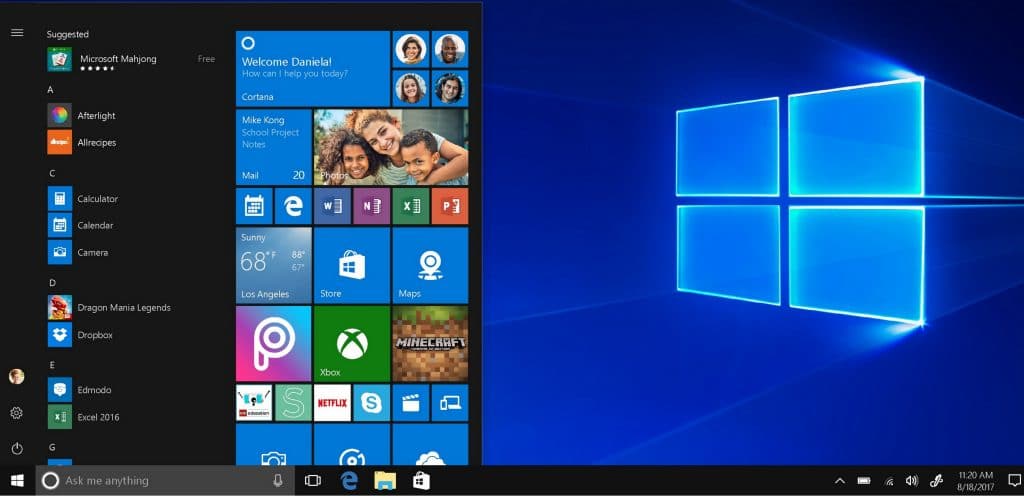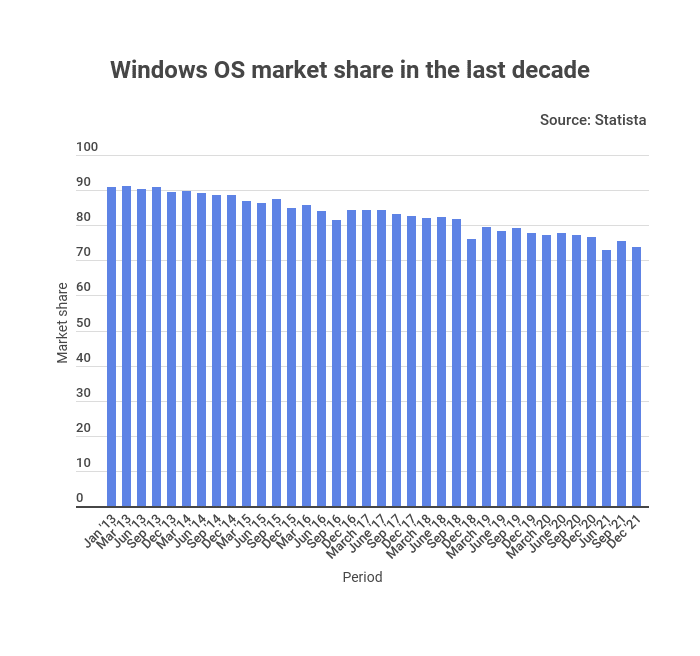
One brand predominates the computer Operating System (OS) scene, Windows. This Microsoft proprietary software has had the lion’s share of the global computer OS market for a long time. It still does, but that is increasingly coming under threat now.
According to a StockApps.com data presentation, Windows has lost 17% of its market share in the last decade. The site has presented data showing that the OS’s market share has plunged from 90.96% in 2013 to the current 73.72%. That’s a drop of roughly 2% a year. Meanwhile, alternative OS’ have seen their cumulative stock rise in that period.
StockApps’ financial expert Edith Reads has been analyzing the trends in that space. She says, “Windows’ stranglehold over the OS market is shrinking because of increased competition. Today, Microsoft is facing competition from developers of alternative OS’. They have developed software that’s appealing to some computer lovers because they’re open source, faster, safer, and simpler to use.”
Alternative OS’ are chipping at Windows’ market share
Microsoft’s woes have been a boon to alternative OS Developers, chief among them being Apple. The tech giant’s macOS market share grew from 7.95% in January 2013 to 15.33% in December 2021. That translates to a 93% gain in that time or an average of roughly 1% per year.
As impressive as that may be, macOS still has a long way to go if it’s to depose Windows. Edith suggests that this is due to two factors. First, Apple products remain dear to the average consumer compared to Microsoft’s. Secondly, there’s the issue of brand loyalty; users familiar with Windows, who are the majority, are wont to stick with it.

Linux is also gaining popularity within the OS market. Among the things that are going for it are its open-source nature, meaning that it’s free. Additionally, users see it as more stable, faster, and secure than other OS’.
Google Chrome and other OS’ also registered gains in the same period. Whereas Chrome jumped from 0.01%, the latter grew from 0.19% to 6.68%.
Microsoft has always blazed the OS trail
Since 1985 Microsoft has set the tone within the computer software sector. Among its iconic operating systems are Windows 95, Windows XP, and Windows 7. The firm has since retired all these versions, though some customers still use XP and Windows 7. They attribute their continued usage of the OS’ to their stability and ease of use.
Microsoft has since released the Windows 11 version. This is an upgrade of its Windows 10 OS. Among its selling points are a slicker design and layout. It’s also optimized for an improved gaming experience and supports Android applications.
Nevertheless, Microsoft’s OS rollouts haven’t always gone as planned. For instance, a section of PC lovers considers the Windows 8 upgrade one of the company’s worst. They claim it’s a poor attempt at upgrading Windows 7 that many till today consider one of the firm’s best OS.

Question & Answers (0)